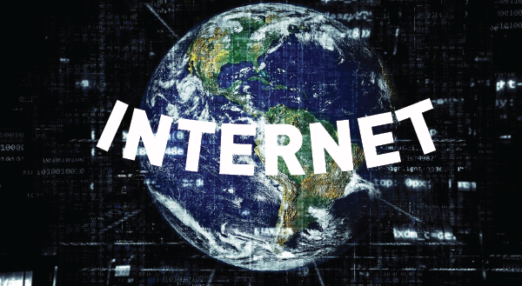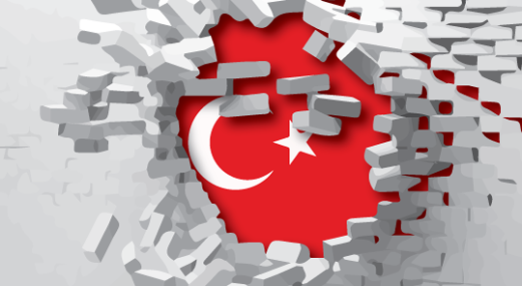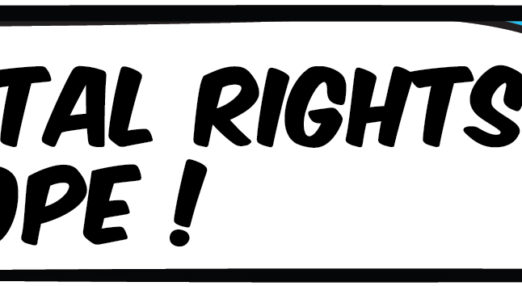internet censorship
Filter by...
-

Terrorist Content Online Regulation: Time to get things right
Closed-door negotiations (“trilogues”) on the Regulation to prevent the dissemination of terrorist content continue in Brussels. After our open letter from December things have moved on fairly slowly at first, but, recently, new texts are quickly being discussed in order to try to reach an agreement soon. Nonetheless, according to MEP Patrick Breyer, many key issues remain open for discussion.
Read more
-

Internet clampdown – convenient distraction from political turmoil?
There was unforeseen result in the United Kingdom general election. The Conservative Party was expected to increase their majority in government. However, it failed to achieve a majority and was forced to seek an alliance with the controversial Democratic Unionist Party (DUP) in order to form a government.
Read more
-

Killing parody, killing memes, killing the internet?
We love the internet because it creates fantastic opportunities to express ourselves and to innovate. But do we love it enough to pass it on to future generations? Nearly 20 years ago, politicians made decisions that gave us the internet we have today. Visionary policy-makers decided not to punish internet companies for the actions of […]
Read more
-

New Danish law can lead to substantial internet censorship
On 12 January 2017, the Danish Ministry of Justice presented a draft law on website blocking for public consultation. This step had been expected for a couple of months as part of the government’s action plan on countering online extremism and radicalisation. Denmark has a complete opt-out from the Justice and Home Affairs (JHA) area […]
Read more
-

State of emergency worsens digital crackdown in Turkey
According to a new report by Freedom House, web freedom across the globe declined for the sixth consecutive year. Turkey placed among the red-flag states in terms of web freedom in 2015-2016 and is now rated “not free” in “Freedom on the net 2016” report after repeated blocking of social media. The country’s status score […]
Read more
-

Internet censorship redux – under the guise of regulating gambling
On 12 June 2015 a law came into effect requiring the providers of networks and electronic communication services in Romania to block access to gambling sites as well as sites advertising gambling activities that are unauthorised in the country. Internet Service Providers (ISPs) will now be obliged to implement a website blocking system and use […]
Read more
-

Social media platforms blocked again in Turkey
Turkish authorities ordered access to 166 websites, including Twitter, Facebook and YouTube, to be blocked after photos of a hostage crisis that ended with the death of a government prosecutor were circulated in the social media platforms. On 31 March 2015, in Istanbul’s courthouse, two militants took Mehmet Selim Kiraz hostage. He was the prosecutor […]
Read more
-

Did AGCOM censor an article about AGCOM censorship?
At the end of 2014, EDRi wrote an article on the Italian telecoms regulator AGCOM’s censorship procedures for the newsletter of the EU Observatory on Infringements of Intellectual Property Infringements. After agreeing to publish the article, the Observatory changed its mind – it has told us that it did so after it “felt obliged to […]
Read more
-

Turkey: Constitutional Court overturns Internet law amendment
On 8 September, the Turkish Government passed an amendment to the existing Internet law (#5651). On 2 October, however, Turkey’s Constitutional Court annulled the most crucial parts of the amendment. The amendment that was passed “aims to protect the dignity and privacy of individuals who become victims of defamation on the Internet.” It provided a […]
Read more
-

The Turkish government tightens its grip over the Internet
On 8 September 2014, the Turkish parliament passed an amendment to the already draconian Internet law. The amendment allows the Turkish Telecommunication Authority (TIB) to block (without a court order) any website that appears to threaten “national security or public order”. Internet Service Providers (ISPs) are required to execute the blocking order of the TIB […]
Read more
-

Ukraine: Sanctions against Russia to result in media censorship?
On 12 August, the Ukrainian parliament (Verkhovna Rada) approved in first reading a draft law (No. 4453) to impose sanctions on Russian companies and individuals over their alleged support and financing of separatism in Ukraine. The draft law included provisions to allow the Ukrainian National Security and Defence Council (RNBO) to shut down or block […]
Read more
-

Energise! Network! Mobilise!
On 4-5 September EDRi will organise an event Energise! Network! Mobilise! in Belgrade, Serbia, to create awareness for digital civil rights issues, exchange experiences, transfer knowledge and network. The two day event will be organised in cooperation with the Share Foundation, Wikimedia Deutschland and Vikimedija Srbije. The panels and workshops will cover a wide scale […]
Read more
